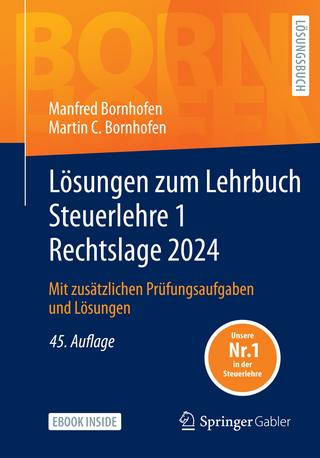
Hubris
Why Economists Failed to Predict the Crisis and How to Avoid the Next One
Seiten
2015
Yale University Press (Verlag)
978-0-300-21354-6 (ISBN)
Yale University Press (Verlag)
978-0-300-21354-6 (ISBN)
- Titel ist leider vergriffen;
- Artikel merken
A frank assessment of economists' blindness before the financial crash in 2007-2008 and what must be done to avert a sequel
A frank assessment of economists’ blindness before the financial crash in 2007–2008 and what must be done to avert a sequel
The failure of economists to anticipate the global financial crisis and mitigate the impact of the ensuing recession has spurred a public outcry. Economists are under fire, but questions concerning exactly how to redeem the discipline remain unanswered. In this provocative book, renowned economist Meghnad Desai investigates the evolution of economics and maps its trajectory against the occurrence of major political events to provide a definitive answer.
Desai underscores the contribution of hubris to economists’ calamitous lack of foresight, and he makes a persuasive case for the profession to re-engage with the history of economic thought. He dismisses the notion that one over-arching paradigm can resolve all economic eventualities while urging that an array of already-available theories and approaches be considered anew for the insights they may provide toward preventing future economic catastrophes. With an accessible style and keen common sense, Desai offers a fresh perspective on some of the most important economic issues of our time.
A frank assessment of economists’ blindness before the financial crash in 2007–2008 and what must be done to avert a sequel
The failure of economists to anticipate the global financial crisis and mitigate the impact of the ensuing recession has spurred a public outcry. Economists are under fire, but questions concerning exactly how to redeem the discipline remain unanswered. In this provocative book, renowned economist Meghnad Desai investigates the evolution of economics and maps its trajectory against the occurrence of major political events to provide a definitive answer.
Desai underscores the contribution of hubris to economists’ calamitous lack of foresight, and he makes a persuasive case for the profession to re-engage with the history of economic thought. He dismisses the notion that one over-arching paradigm can resolve all economic eventualities while urging that an array of already-available theories and approaches be considered anew for the insights they may provide toward preventing future economic catastrophes. With an accessible style and keen common sense, Desai offers a fresh perspective on some of the most important economic issues of our time.
Meghnad Desai is emeritus professor of economics, London School of Economics, where he was also founder and former director of the Global Governance Research Centre. He is a member of the House of Lords and chairman of the Advisory Board at the Official Monetary and Financial Institutions Forum. He lives in London.
| Erscheint lt. Verlag | 15.4.2015 |
|---|---|
| Zusatzinfo | 8 b-w figs. |
| Sprache | englisch |
| Maße | 140 x 216 mm |
| Gewicht | 454 g |
| Themenwelt | Wirtschaft ► Allgemeines / Lexika |
| Wirtschaft ► Betriebswirtschaft / Management ► Finanzierung | |
| Wirtschaft ► Volkswirtschaftslehre ► Finanzwissenschaft | |
| ISBN-10 | 0-300-21354-9 / 0300213549 |
| ISBN-13 | 978-0-300-21354-6 / 9780300213546 |
| Zustand | Neuware |
| Informationen gemäß Produktsicherheitsverordnung (GPSR) | |
| Haben Sie eine Frage zum Produkt? |
Mehr entdecken
aus dem Bereich
aus dem Bereich
Allgemeines Steuerrecht, Abgabenordnung, Umsatzsteuer
Buch | Softcover (2024)
Springer Gabler (Verlag)
CHF 39,20
Buch | Softcover (2024)
Springer Gabler (Verlag)
CHF 34,95
theoretische Basis und praktische Anwendung
Buch | Softcover (2023)
De Gruyter Oldenbourg (Verlag)
CHF 55,90


